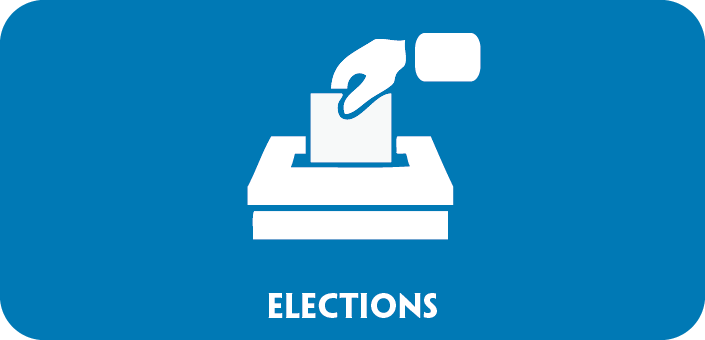Back to: GOVERNMENT SS2
Welcome to class!
In today’s class, we will be talking about elections. Enjoy the class!
Elections

CONTENT
- Meaning, Functions and Demerits
- Types of Elections
- Merits and Demerits of types
MEANING OF ELECTIONS
An election may be defined as an act of choosing or selecting candidates into different offices in government. The candidates are to represent the people of a country in the parliament or other positions of government. It is a contest between competing political parties or groups to acquire political power through the ballot i.e. the electorate’s mandate.
FUNCTIONS/ADVANTAGES OF ELECTIONS
Elections are held to serve the following functions;
- Choosing of Representatives; Elections makes it possible for the citizens to choose those that will represent their interest and opinions in the government.
- Elections are used to change a government smoothly and orderly.
- Elections confer legitimacy on the government as representatives of the people
- Election makes the government responsive to the needs of the people since it can be voted out
- Elections allow political parties to educate the people on national issues.
- Elections are used to test the popularity of the government or a member of parliament.
- Elections help to integrate the different societies.
- Elections help to socialize the people.
DEMERITS OF ELECTIONS
- Elections bring about the polarization of the people of a country into antagonistic groups.
- The division of people in a country caused by election brings about disunity in a country.
- Elections are too expensive to conduct.
- Minority groups are usually not favoured during elections.
- Elections cause uneven development as a result of neglect of areas that failed to vote for the party in power.
- Elections breeds nepotism, divisionism and ethnocentrism.
- Elections enthrone politicians who deceive the people with their fake manifestoes and sugar-coated tongue.

TYPES OF ELECTION
DIRECT ELECTION
This is the method by which the electorate cast their votes directly in choosing people to represent them in the legislature and other offices in government. Only the qualified voters are allowed to carry out this political exercise.
ADVANTAGES OF DIRECT ELECTIONS
- It gives voters the freedom of electing members of the legislature without interference
- It is a requirement of representative government.
- It guarantees political equality of the citizens i.e. one man one vote.
- Voters would show more government interest and will know their representatives.
- Elected representatives are usually the popular choice of the people.
DEMERITS OF DIRECT ELECTION
- Several voters may not be able to vote intelligently due to lack of proper political education.
- Direct voting may cause hatred and embarrassment.
- It encourages violence during polling as a result of the number of people involved.
- A lot of rigging is involved in direct election because it is the final election to elect representatives.
- Corrupt-minded candidates may use their wealthy position to buy the votes of the electorates, particularly in poor societies.
INDIRECT ELECTION
This is election into the legislature by two or more stages i.e. through Electoral College who will now vote on behalf of the people.
MERITS OF INDIRECT ELECTION
- There is competence on the part of the electors who finally select the members of the legislature.
- It is less violent than direct election.
- The candidates elected through indirect elections are more qualified going by the intelligent level of the people that elected them.
- It is less expensive and with little opportunity of rigging elections and electoral malpractices.
- It increases the quality of legislation and administration in a country owing to the candidate’s qualification.
DEMERITS OF INDIRECT ELECTIONS
- The Electoral College can be easily influenced and bribed with money.
- Some interest may not be adequately represented in the legislature.
- The electorate does not know their representatives and this form of election does not reflect the popular choice.
- Government policies are not in line with the masses as they did not have the opportunity to choose manifestoes of their choice.
- It does not encourage equality of votes and it is less democratic since they did not vote.
GENERAL EVALUATION
- Define direct election.
- State 4 merits of direct election.
- What are the limitations of direct elections?
- Explain Government as an institution of the state.
- State 5 reasons why we study Government
In our next class, we will be talking about Types of Voting. We hope you enjoyed the class.
Should you have any further question, feel free to ask in the comment section below and trust us to respond as soon as possible.

This class is good for me
What is The electoral college
Yr notes are exceptional Thank you
This system is superb and affordable
We’re glad you found it helpful😊 For even more class notes, engaging videos, and homework assistance, just download our Mobile App at https://play.google.com/store/apps/details?id=com.afrilearn. It’s packed with resources to help you succeed🌟
Thank you for the update